Are your children doing enough chores?
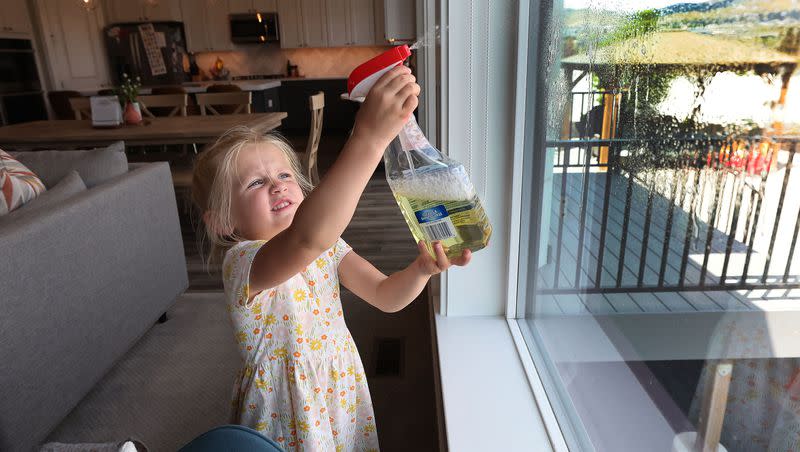
As a child, my mom had to do much of the cleaning in her household — vacuuming, sweeping, cleaning metal Venetian blinds, dusting, washing dishes, even buying groceries for the family. For her 14th or 15th birthday — she can’t remember which — her mother and stepfather gifted her a new vacuum cleaner.
Today, even though she’s nearing 70, my mother is still upset about this, and her experience has influenced my parenting.
Fearful of repeating my grandmother’s mistakes — and leaving my children resentful — I’ve gone in the opposite direction, erring on the side of giving my two kids too little to do. So they loll about the house or head to the backyard while I do everything.
But a lack of responsibility can be just as damaging as too much. And I often wonder if I’m creating lazy, entitled children who will be unable to care for themselves in the future.
It’s a dilemma that many parents face. While most of us grew up doing chores in our homes, relatively few parents today make their children contribute. One 2015 survey found that while 82% of parents report that they pitched in as a kid, only 28% were giving their own children chores, The Wall Street Journal reported. That’s less than a third.
These statistics point to a sea change in our society’s ideas about children and their roles in the home. It’s true that children are busier than ever with sports and other activities. But when our kids are arriving at college unable to do their laundry, perhaps it’s time to rethink their lack of responsibility in the home.
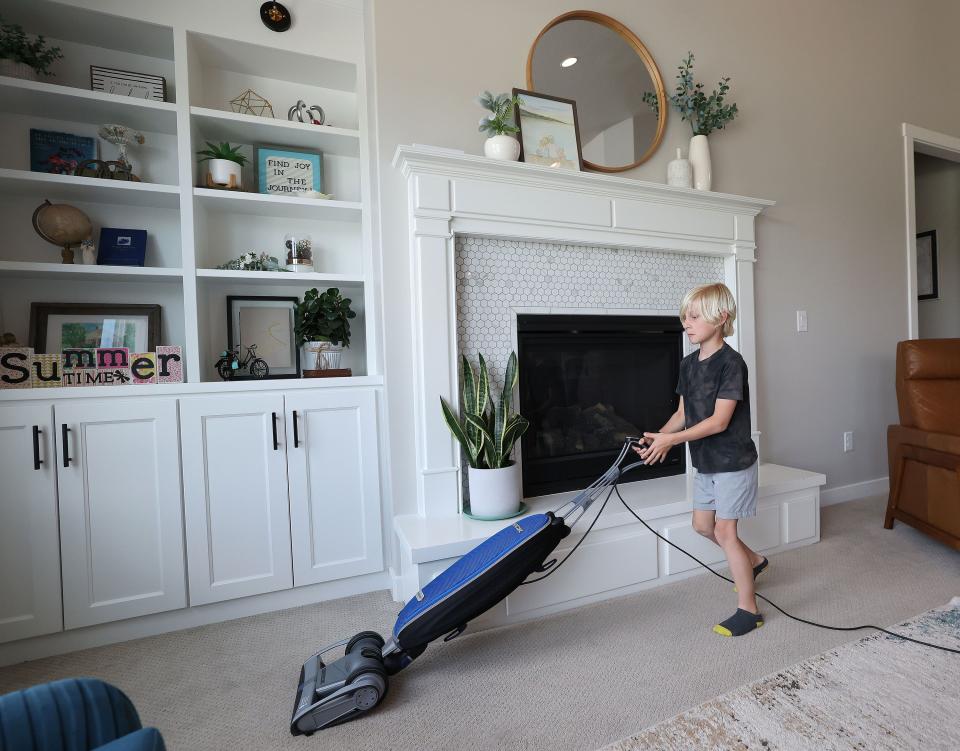
The dark side of chores
Across the board, psychologists agree that having some age-appropriate chores is good for children. However, there’s a dark side: give your kids too much responsibility in the home and you cross the line into something called “parentification.” That seems to be what happened to my mother.
The psychological term refers to a role reversal between parents and children in which the child ends up taking on parents’ responsibilities. Parentification deprives children of a normal childhood; the result is that they don’t get to move through developmental phases as they normally would.
Parentification can be emotional or instrumental, said Kathryn Higdon, a licensed professional counselor associate affiliated with Bloom Behavioral Therapy Center in Greenville, South Carolina. Instrumental refers to things like running a household or translating for parents at medical offices. The emotional component is when a child becomes like a confidante for their mother or father, getting far more information than they should about, say, their parents’ marriage or emotional state.
The best way to sum up parentification is when “children take on adult roles in the home that they shouldn’t,” said Higdon.
Perception is key, Higdon explained. “A lot of the negative effects happen when the child perceives that it is more than they can handle or more than they should handle … that perceived unfairness of the role is a big deal.”
So if my children complain that chores aren’t fair, does that mean I shouldn’t give them any for fear of parentifying them? Where’s the line?
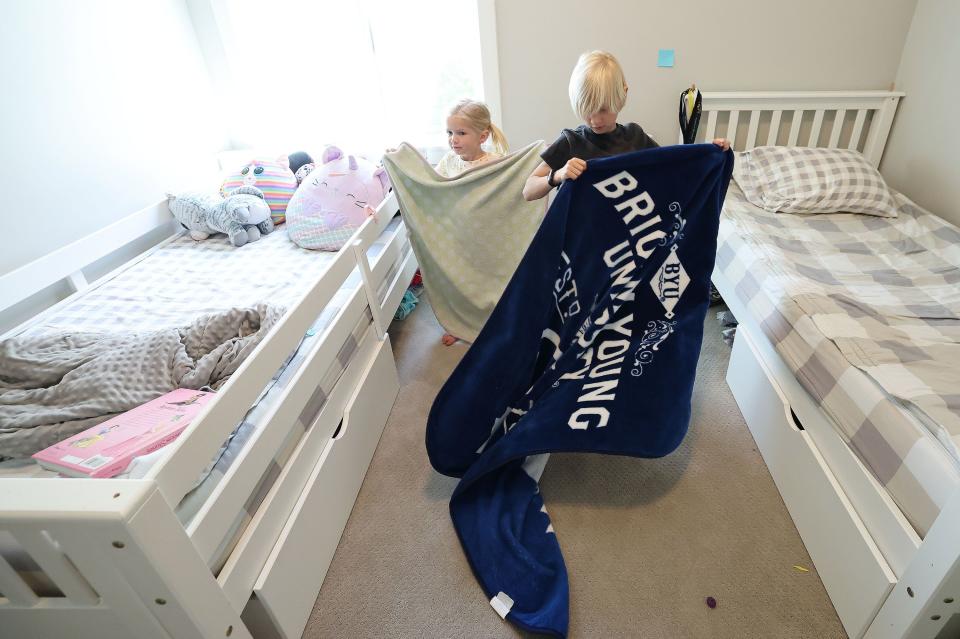
Importance of chores
An utter lack of responsibility in the home is also damaging to children, Higdon warned.
“That can lead to disorganized attachment, too, in that you’ve got that lack of independence and that reliance on the parent to fill all of your needs,” said Higdon. “So it interferes with your normal development and interferes with the parent-child relationship, as well.”
And research shows that household chores are good for kids on many different levels, ranging from academic success to forging healthy friendships.
Related
“Peer relationships, life satisfaction, academics all correlated significantly with the frequency that the child was reported to do chores at home,” said Dr. Mark DeBoer, a pediatrics professor at the University of Virginia. In a study conducted by DeBoer and others — and published in the Journal of Developmental and Behavioral Pediatrics — researchers controlled for a number of variables including socioeconomic status and parents’ educational attainment. They found that chores are overwhelmingly positive for children.
However, DeBoer acknowledged that there could be some unaccounted-for factor that contributes to both the likelihood of a child having chores and the outcomes the researchers were examining. It could be that those families are qualitatively different in a number of ways — perhaps they’re more organized and more willing to follow through. Maybe giving children chores is a sign of love and respect, DeBoer speculated.
Regardless, the results remain: “Families that see the importance of chores are more likely to have children who do better in school, feel better about others, feel better about themselves,” said DeBoer, who added, “The children that never had chores were the lowest in everything — lowest peer relationships, lowest life satisfaction. So definitely, in my own reading of this, all kids should have some chores.”
Pointing to research suggesting that there could be “benefits to including chores in a child’s routine as early as age 3,” the American Academy of Child and Adolescent Psychiatry says that children who do chores might be better able to cope with “frustration, adversity and delayed gratification” — important life skills, especially in adulthood.
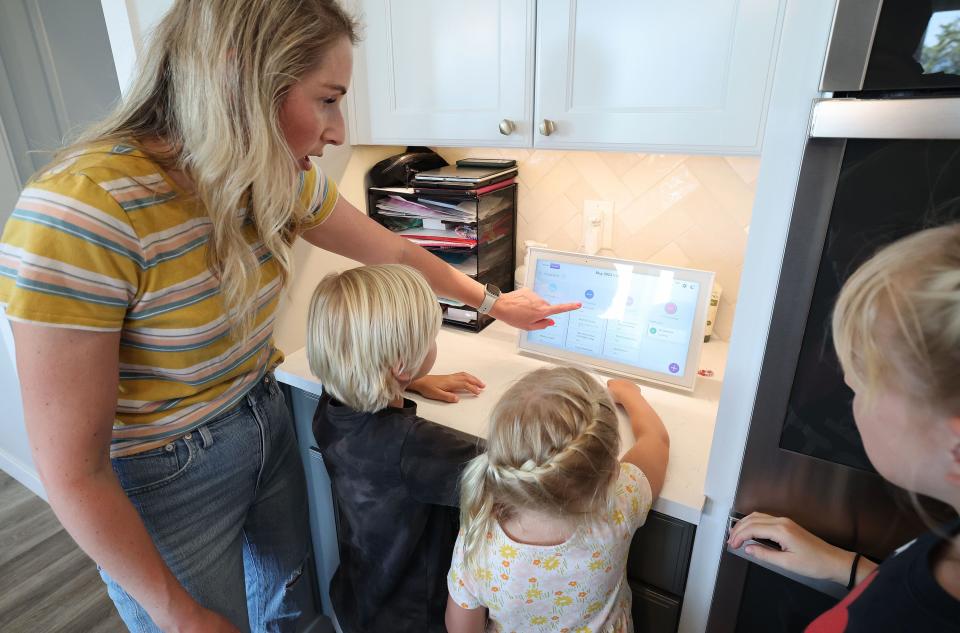
The ‘mean parents’ on the block
That’s why Scott Evanson, of Lehi, and his wife assign chores to their kids, who range in age from 18 months to 11 years old. The children’s tasks are light and age-appropriate, and include putting away silverware, making their beds and vacuuming one room once a week. But more than that, they’re symbolic — teaching the children that tackling tasks they don’t feel like doing is just part of life. “You can be an ice-cream taster and you can wake up and say, ‘I don’t want to do this today,’” said Evanson, who wants his kids to learn that “not every day is your birthday party.”
He also feels that children who don’t have responsibility in the home grow up to be ill-equipped for life’s challenges: “Something comes up and it’s mission critical and they break down and can’t do it.”
Evanson said his family is one of the few on their block that gives their children chores, something that is not lost on his brood. “We are the mean parents on our street who make our kids do chores — we hear about it from our kids,” he said, adding, “We don’t just give them money to do stuff; they have to work to earn money.”
Related
There is, of course, a vigorous debate around whether children should be compensated for household chores. Ashley LeBaron-Black, an assistant professor at Brigham Young University’s School of Family Life, believes some chores should be unpaid so children understand that lending a hand is just part of running a home and being part of a family. However, larger tasks can be compensated and can offer children powerful lessons about being paid for work. (That also helps to give children financial literacy.)
When it comes to paying children for chores, “there’s no one right answer for every family,” LeBaron-Black added. But it’s “really important that kids have some of their own money to manage themselves and practice with,” she said.

How to give kids chores
So, paid or not, chores should be a given. But the manner in which they’re delegated is important, experts say. Parents should consider whether or not the task is age appropriate. For example, the American Academy of Child and Adolescent Psychiatry recommends that 4- to 5-year-olds do things like clear the table after dinner and feed pets; 6- to 7-year-olds can help out by sweeping floors. According to the academy’s guidelines, teenagers can handle major tasks like grocery shopping for the family.
The Child Development Institute also has an extensive list of guidelines for chores; they suggest having children as young as two take responsibility in the home by filling pets’ bowls, putting dirty clothes in the hamper, and helping a parent load the laundry into the washer and dryer. Elementary school-age children can do more substantial tasks like sweeping floors and bringing in light groceries from the car.
Evanson’s children do about 15 minutes of chores a day, he said. Sometimes, he added, they spend more time complaining about their chores than the time it would take to do them. On other days, they don’t bother fussing. “They come home from school and start doing their stuff because they know it’s inevitable,” he said.
Higdon said parents should give their children options, rather than just assigning tasks to children regardless of how they feel about them. “Keep in mind that ability to cope,” said Higdon. “If it’s something that they find too difficult, then obviously they’re not coping with it well, and they’ll have more negative outcomes than they would otherwise.”
But there’s a fine line between listening to children’s feedback and holding your ground, which is also important, Higdon added. “You kind of have to give your kids the ability to fly as well, and to fail if they need to, and to teach them that they can recover.”
She added: “If kids feel helpless and can’t do what they need to do, they’re not going to grow up to be successful adults,” Higdon said. “They will be forever reliant — whether it’s on a parent or the next relationship.”
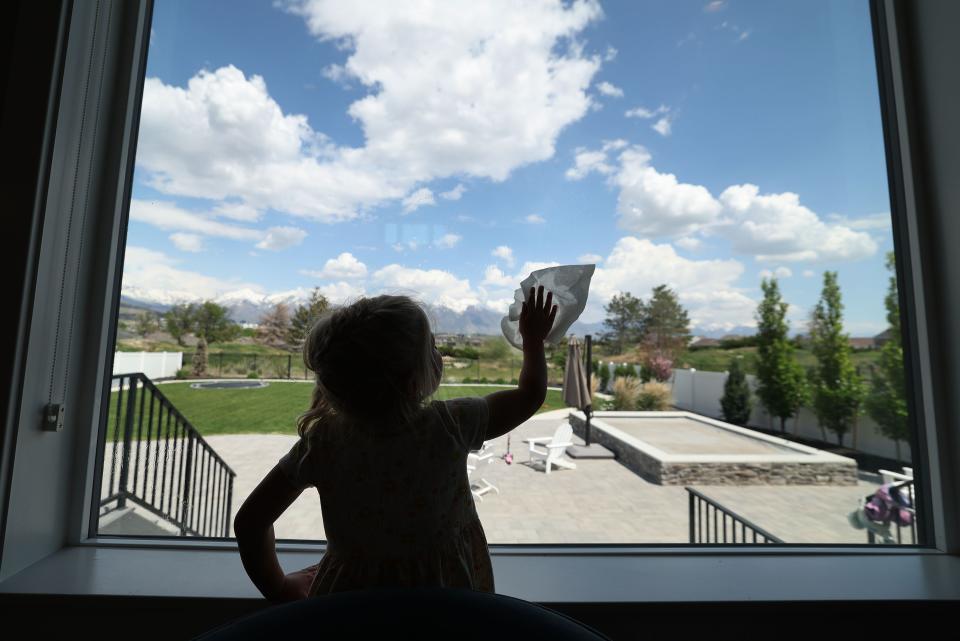
Correction: A previous version of this story had the last name of the family spelled incorrectly. It is Evanson, not Evanston.

